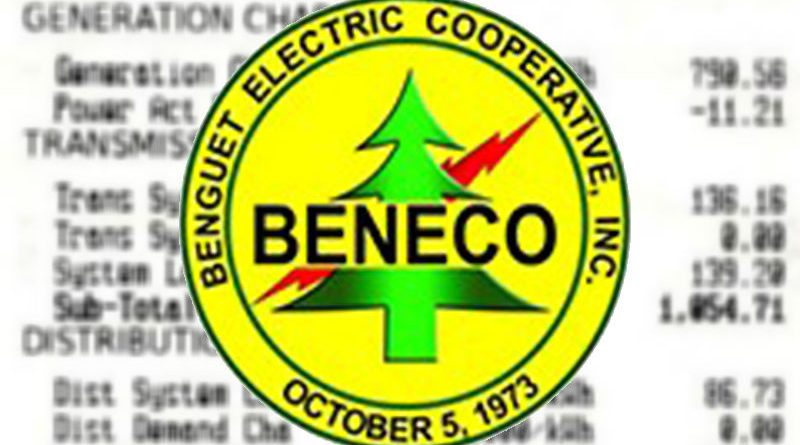CAN CLIMATE CHANGE be slowed down with some significance?
This weekend, two tropical weather events are threatening the country, just off Palawan a mere nearly 100 kilometers away and another still a good 1000 km far-off. Moderately strong earthquakes have been occurring in places elsewhere, mildly catching its populace on swaying footing. All these extremely aberrant behavior while summertime struggles in a final push to oblivion. Again, it’s all about Mother Nature’s extreme behavior, and what we’ve been globally experiencing — and taking for granted all these years.
Of course, hereabouts and considering our archipelagic circumstance as a country, we’ve been facing up to nature’s temper tantrums in utterly extreme conditions. When the earth shakes up, it does so in mighty heaves, fortunately in places of less people convergence. About the only great temblor in recent memory, at least for those of us living high up in the mountains, is the 1990 killer-quake when thousands became casualty statistics in a matter of 26 eternal minutes.
Down under beneath us, when the weather turns hot, it’s very hot and deadly; on rainy days, floods occur in a matter of minutes, submerging everything on their lethal path. Coastal areas have been shedding portions of shorelines. Elsewhere, several thousand kilometers away, erratic weather patterns have been perilously taking place. Subtropical deserts are expanding; arctic glaciers are melting down. Snow has even incredibly hit the Saharas.
How did all these climate extremes come about in recent years? Why has Mother Earth gone seemingly haywire and out of skew? And what can we do, right here and now to contend with the fast-changing climatic conditions? Scientists the world over have been warning us that since 1750, human activities have relentlessly produced a 40% increase in the concentration of carbon dioxide in the atmosphere, resulting from combustion of fossil fuel principally coal, oil, natural gas, along with deforestation, soil erosion and animal agriculture.
As a result, due to own human folly throughout much of the recent centuries, much of our environment has seemingly run roughshod over our pathetic life. The inconvenient truth is that we’ve been abusing our fragile environment, since way way back. We’ve been wreaking havoc on our precious ecosystem that has been our lifeline into the future. Savants have in fact warned that by 2047, the earth’s surface temperature would have drastically altered, enough to ignite mankind’s own ill-fated annihilation and extinction. And that’s just 29 short years away!
Clearly, we need to be in concert with each other, abandoning our wanton ways towards a more responsible stewardship of our planetary home. This means bringing down the level of massive pollution now afflicting the world. This means reducing strategically the greenhouse gas emissions into the earth’s atmosphere. This means exerting global pressure on the world’s leading polluters that the United States and China have become to take the lead in acting more responsibly if only in penance for their monumental mistakes wantonly committed in the name of economic progress.
But global responsibility must not only be every leader’s resolve. For us as individuals, this means accepting a shared effort in the global task to ensure that the next generation of inhabitants will have something of value to hand over to the next. As agreed upon in the Paris accord — from which the world’s policeman has opted to get out in a bewildering retreat — greenhouse gas emissions should be drastically brought down through stern, iron-clad commitments of reduction. Last heard, not much progress has been achieved, motor engines have continued to rev up, machine industries remained humming, forest trees are felled down, mountain tops are leveled with impunity.
In a 2014 report of the Intergovernmental Panel on Climate Change, we are told that global emissions from human activities have become higher than ever. Accordingly, concentrations of carbon dioxide, methane, and nitrous oxide have all shown large increases. The biggest increase took place between 2000 and 2010 (just a decade and a half ago), generated from the energy sector (47%), industry (30%), transport (11%) and building (4%).
Of course, in the end, it is people — yes, you and I and the rest of all us — who must do its share, even at the cost of the most extreme of sacrifices to keep Planet Earth a worthy hand-over liberated from the clutches of fossil fuel, free enough to act locally as our global response beyond the borders of our self-serving attitudes, beyond the barriers that greed may impose. It is people for whom the next generation will produce the succeeding stewards. It is people who matter most, even when leaders believe otherwise.
Climate change can be slowed down when everyone — you and I and the rest of us all — does his part, literally walking the extra mile at least once a day. Inaction will never exculpate us from the horrendous effects brought to bear on our lifetime. Indifference will not make us lesser culprits. Doing the right thing in the right way will bring us back into the right pathway, regardless of the roadblocks along the way.













